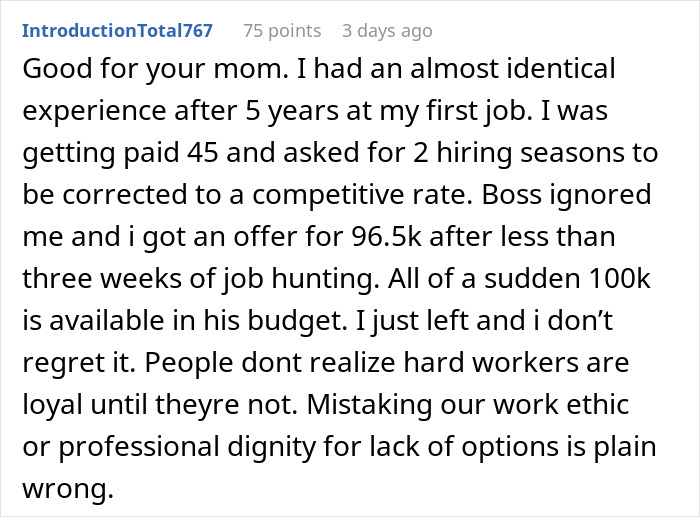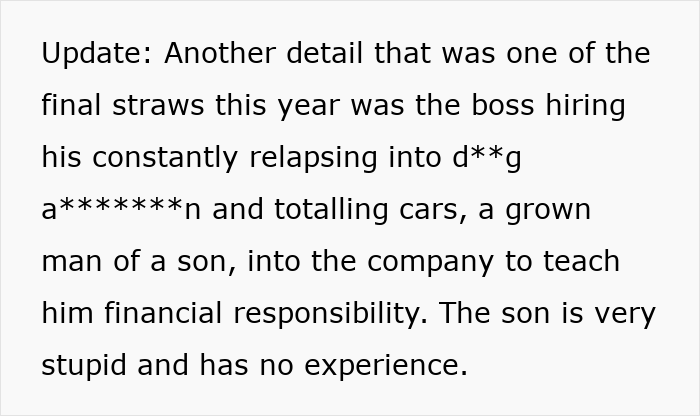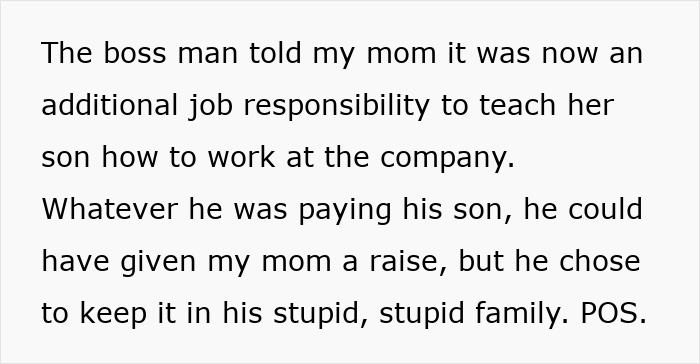Regret is a powerful emotion. More often than not, many of us only realize the value of something or someone after they are gone. It’s a feeling that hits hard for some people, which can lead to immense frustration, even a meltdown.
That is precisely what happened to an employer who had been mistreating one of his staff members for years through unjust pay. The employee eventually landed a much better job offer, prompting her to send her notice of resignation.
It’s safe to say the boss didn’t take it too well, as he quickly realized his ill-advised decisions.
Some employees, unfortunately, deal with an unfair boss

Image credits: freepik (not the actual photo)
This woman was overworked and underpaid for years, until she found a better job offer





Image credits: freepik (not the actual photo)
Her boss made desperate attempts to have her stay, but it was too late


Image credits: davidsa691
A toxic work culture can immediately cause a spike in a company’s resignation rates

Image credits: unsplash (not the actual photo)
It’s no secret that a toxic workplace can adversely affect any employee’s morale. But in 2021, it was the primary cause for the Great Resignation, which saw more than 24 million Americans leaving their jobs.
According to a 2022 report by MIT Sloan Management Review, the leading elements of a toxic work culture involved employees feeling disrespected, along with their boss’s unethical behavior.
The company’s failure to recognize an employee’s performance has also been an issue. The report adds that high-performing staffers tend to resent the lack of recognition, which includes financial compensation for their work.
Salary gripes have also been a problem for a while now. A 2014 survey by SHRM revealed that 28% of employees quit their jobs due to unjust pay, while 38% leave because of inadequate benefits.
The main issue here is the employer, who, by all accounts, refused to grant the woman the salary she deserves for the work she put in. And when dealing with an unfair boss, leadership advisor Margie Warrell, PhD, advises identifying their prime motivations.
In an article for Forbes, Warrell urges asking yourself questions like, “What does he care about?” or “How does he measure success?” She also emphasized the importance of speaking up rather than sweeping the problem under the rug to avoid an awkward conversation.
But if all else fails, and jumping ship is the only option, Warrell encourages doing ample research.
“Sometimes, in our desperation to escape a toxic work environment, we fail to take notice of the warning signs that the new job we’re taking will only be worse,” she wrote.
According to the author, their mom spoke up and asked for a raise, which was immediately denied. Fortunately, a much better offer landed on her lap, which allowed her to turn the tables and reject her boss’s desperate counteroffer.
People in the comments lauded the woman’s actions



















More details of the story emerged, explaining the last straw that drove the woman to finally quit










